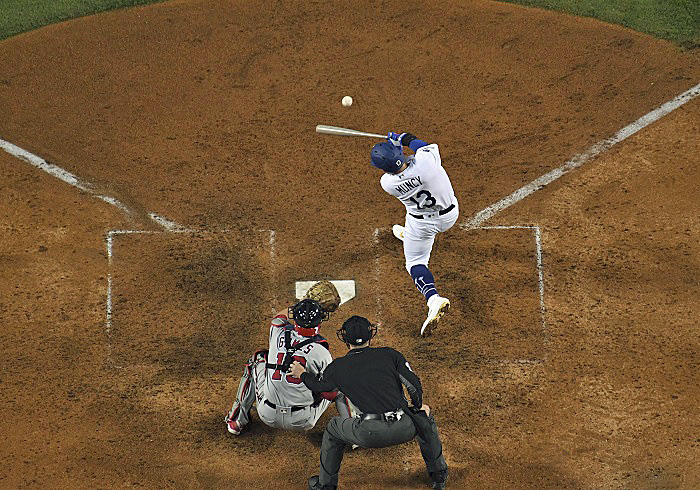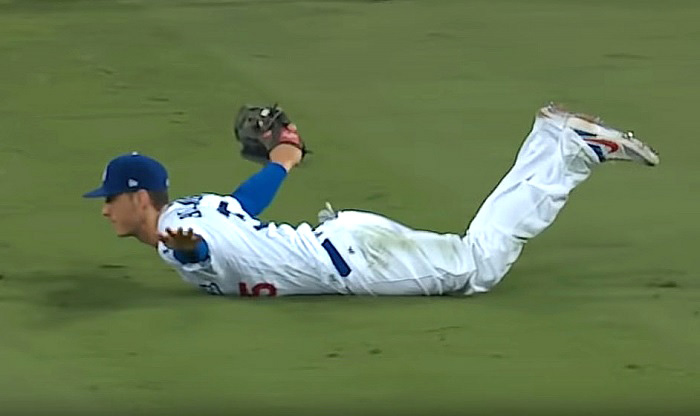In accordance with the Collective Bargaining Agreement (CBA) negotiated between Major League Baseball and the Major League Baseball Players Association, players with three or more years of MLB service time (or those who qualify with Super Two status*) are eligible to have their respective salaries determined in arbitration.
The Ugly
Arbitration has winners and losers. Both sides have the opportunity to present their case, offer evidence (statistics), call witnesses, rebut the other side’s points, and usually present a final summation that supports their position while attempting to undermine the other side’s argument. Arbitrations of workforce issues, like pay and job security, are personal; this is not a sophisticated warm and fuzzy debate where the parties shake hands at its conclusion and go about business as usual. Either the team (company) or the employee (union) wins and the other party loses. That is certainly an over-simplification of what can be a complicated process, but in the end, it comes down to winning and losing.
Dodgers president of baseball operations Andrew Friedman understands the arbitration process as well (or better) than anyone and the acrimony that can result between player and team. That is likely the reason he has eschewed the process over the years with a policy that once the player and team have submitted their respective salary numbers to arbitration, there is no further negotiation (often referred to as ‘File and Trial’) for that year’s contract. This policy has worked to the benefit of the team – and players – from 2015 through 2019 and involved a total of 33 players.
But 2020 has broken this remarkable string. The team was unable to reach contract agreements with Pedro Baez, Max Muncy, Joc Pederson, and Chris Taylor, who will, as of this writing, be going to salary arbitration (‘File and Trial’) hearings in early February.

(Photo credit – Jon SooHoo)
The Bad
Pedro Baez is looking for a one-year / $4 million contract (the Dodgers offered $3.5 million), Max Muncy wants $4.675 million (the Dodgers offered $4 million), Joc Pederson wants $9.5 million (the Dodgers offered $7.75 million), and Chris Taylor expects $5.8 million (the Dodgers offered $5.25 million). MLB salary arbitration is known as ‘pendulum, or final offer arbitration,’ where the three-panel arbiters can only select the player’s number or the team’s number. There is no middle ground, it’s win or lose.
Even a cursory glance at these amounts raises red flags, most notably that of Max Muncy – who has been one of the best offensive players in MLB over the last two seasons – and his $4 million offer by the Dodgers, while enigmatic relief pitcher Pedro Baez was offered $3.5 million. Chris Taylor was offered $5.25 million, even though his WAR (9.6) and wRC+ (116) over the last three seasons are significantly better than those of teammate Kiké Hernandez (5.8, and 100), who agreed to the Dodgers’ $5.9 million offer without hesitation.
And then there’s Joc Pederson, who was offered ~ more than half of what (thus far) less-than-productive outfielder AJ Pollock will be paid in 2020 ($12 million).
The common denominator for each of these disparities is MLB service time – i.e., seniority in a union environment. The CBA permits arbiters to consider salary data of players under contract with the same amount of service time limits, and publicly-available data (Fangraphs, Baseball-Reference, Baseball Prospectus, et al), but not the use of performance technology generated by teams or available for sources like Statcast.
An interesting CBA limitation is that contracts decided through arbitration are not guaranteed until the player makes the team’s opening day active (25-man) roster. Should a player have a horrible spring training, a team may release him and pay a maximum of 45 days of termination pay (30 days if the player is released before the 16th day of spring training).
The Good
The Dodgers avoided the ugliness of arbitration by negotiating 2020 guaranteed contracts with 2019 NL MVP Cody Bellinger ($11.5 million, a new MLB record for a first-year arbitration-eligible player), Kiké Hernandez ($5.9 million), Corey Seager ($7.6 million), Ross Stripling ($2.1 million), and Julio Urias ($1 million).
In particular, Bellinger, Seager, Stripling, and Urias are critical to the Dodgers 2020 drive for the elusive world championship. To have them under contract and avoiding arbitration is huge.

(Video capture courtesy of SportsNet LA)
There is certainly the possibility of more good news in the coming weeks, as it is still possible for the Dodgers to negotiate multi-year extensions with Muncy, Pederson, Taylor, and possibly Baez before arbitration hearings begin on February 3 in Phoenix.
We can only hope.
* * *
* Super two status – players must rank in the top 22 percent, in terms of service time, among those who have amassed between two and three years in the Majors. Typically, this applies to players who have two years and at least 130 days of service time, although the specific cutoff date varies on a year-to-year basis.
* * * * * *




 January 11th, 2020 at 12:00 pm
January 11th, 2020 at 12:00 pm  by 0799291000348
by 0799291000348  Posted in
Posted in 

This process is terrible! There’s no reason the 2 sides can’t find common ground. IMHO this is bad for our game. Bad feelings for everyone
Kenn, the arbitration hearings, if the players reach that point and depending upon winning or losing these cases, it just may be enough to alienate some players that when they reach FA, they certainly look to go elsewhere. Call it sour feelings but that’s the real ugly issue behind this process… it can alienate the players involved
Arbitration is a necessity when you can’t agree. What else could you do?
Well let’s hope Dodgers can get the remaining 4 players signed ahead of any hearings, which as we have been told could get ugly.
Very good question. One small change to the process would help; eliminate the face to face hearing. have each party submit its data and rationale in writing — perhaps limiting the report to 5, or even 10 pages. The arbitrator issues his decision in writing — case closed. IMO, the whole pay process in MLB is broken and needs to be replaced from bottom to top — starting with increasing minimum pay for first year players to $1M.
I agree